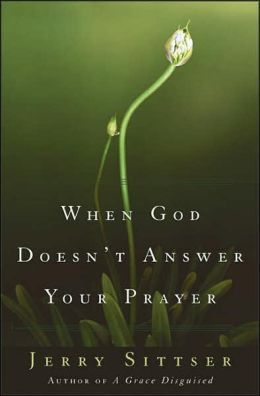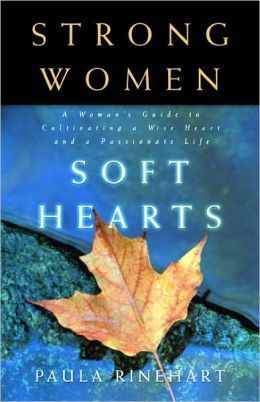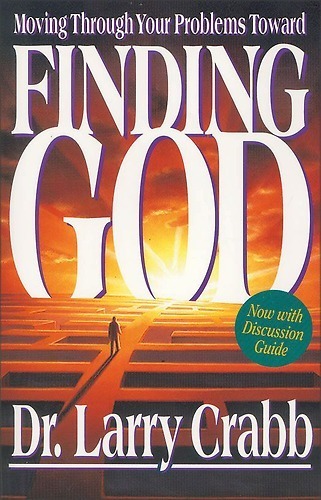Margaret McSweeney's Blog, page 26
September 3, 2013
Fanning the Flames for a Hope filled Tomorrow
Did you starting out the New Year with a heavy heart, hopeful that what you were praying for would come to pass quickly? Maybe it’s a wayward child, a life threatening diagnosis, or a divorce looming in the future. Romans 5:5 tells us “ . . . hope does not disappoint” but can we really believe that when for years nothing we’ve prayed for has changed in our lives?
We keep offering up the same heartfelt petitions to a God who seems silent, and in the midst of the silence our discouragement turns hope into despair.
The problem with losing hope is that somewhere along the line, we lose the connection to our hearts. Hope is supposed to be the anchor for our souls. Without it despair is inevitable.
How do we rekindle hope when the embers of desire have long since burnt out? Is it possible to turn all our unanswered prayers into something redemptive? The answer is yes. The secret is found in Hebrews 6:19 and in Romans 5:5.
The Romans passage makes us a promise. It tells us that hope does not disappoint. That hope is found in Christ. Hope isn’t something ethereal, it’s a person; the Lord Jesus Christ, and if you and I are connected to him in relationship, he becomes the anchor that Paul speaks about in Hebrews 6:19 “We have this hope for the soul, firm and secure.”
What does this passage really tell us about hope? Consider this:
Strength of an anchor
An anchor is a strong and steadfast object. It has tenacious holding power because it “hooks” into the seabed. It’s sheer size and mass makes it immovable. It was no accident Paul used this analogy to describe the tenacity to which Jesus holds us and keeps us in times of trouble.
Weakness of the world
In this world we are like ships at sea, subject to being cast to and fro, and in constant danger of calamity. The world offers us no solid assurance of safety. It’s changeable and unpredictable, unlike Christ who is unchanging and constant.
Sacrifice
Christ’s sacrifice for us provides us with living evidence that he is a trustworthy savior
Secure Base
In a world laced with heartache, security is a most necessary gift to Anyone who has mothered knows the security a touch provides a child. We live for those moments when the feeling of love becomes tangible.
Control
An anchor helps control a ship. It does so by its strength and the force with which it grips the sand. We gladly submit to the control the anchor provides for the boat when we’re sailing because it stops us from danger. In the same way, Christ offers control over our lives. As we anchor our souls to his constant care and abiding love, we will find the peace and rest our souls desire. His control is always for our good. Like the anchor he steers us away from harm.
What does God really tell us about hope? What can he offer the grieving mother, the heartbroken daughter, or those ravaged by loss? Just this: Himself. Lest we forget the God of the universe willingly gave his only Son so that you and I would not lose heart. Be encouraged beloved and stay the course, the story isn’t finished yet!
The problem with losing hope is we lose the connection to our hearts. @MargaretMcSweeney...
Click To Tweet
Are you new here? You might want to subscribe to my email updates or follow me on Facebook.
September 2, 2013
Fast Forward Fifteen
Returning to my seat at the airport gate, Joe motioned with his eyes, for me to observe the three people sitting just in front of us. Their backs were to us, so I did not readily see what he was trying to tell me. He quietly said, “Just watch, I’ll be right back.”
Within moments, the 45-50 year old man began conversing with the elderly couple in their late 70’s to early 80’s – more than likely his parents. The son stood, and wobbled away with mom following after him.
It hit me hard: this was Joey, Joe and I in fifteen years; maybe twenty. It was intriguing. It was sad. It was hard. It was educational. It made the future seem all too real.
I could tell the son had difficulty speaking and making his needs known, but what intrigued me more was how little conversation there was between the parents. They did not look at each other. They may have shared 4 words. They seemed quiet, sad, and burdened. I don’t want to be judgmental, because they may have been tired after much travel, or perhaps they were sadly taking their son to a group home where they might never see him again, or perhaps they had said everything they needed to say over the course of these many years of caring. I just know that the picture I was viewing looked and felt sad.
This scenario nudges me to be intentional as I live the days I’m given with our son. I want each day to be lived with fullness, joy, in fun, and yet in the reality that there are “those days” of challenge and frustration, too! I want to live each day that way so when we reach that end stage of life, we can have joy and fullness and fun then, too. I want to embrace life and look for the benefits. IF we do that, we’ll look for ways to appreciate all aspects of life. When I think over the past almost 30 years of caring for our son, I’m reminded of the many wonderful things we’ve learned and experienced that one can’t know until there further into the journey . . .
We’ve relied on God, not ourselves, in our challenging situations
Learned our weaknesses and who we were in the midst of them
Was clearly able to determine what was realistic about life, what was important, and what to let go – coming to recognize the privilege of serving our loved one
Learned discipline helping our son develop routines to deal with constant and unending challenges
Developed flexibility in our attitudes and in daily adjustments, making quick changes often
Watched our son overcome obstacles that our other children and children around us found very simple
There have been many wonderful people we’d never have met had we not taken this journey
Have learned to see the value in every life, not the length or quality of life but its value
And so much more . . .
So instead of fast forwarding the time I have, I’ll excuse myself and go pop that bowl of popcorn the three of us will share – watching the sports game my son so enjoys! “Here’s to the present!”
Are you intentional in the days you are given with your special needs child? @MargaretMcSweeney...
Click To Tweet
Are you new here? You might want to subscribe to my email updates or follow me on Facebook.
August 30, 2013
WATCH IT!
Going through airport security with our son Joey can prove to be interesting. His special needs requires us to “prompt” him to take off his shoes, “prompt” him to move forward, “prompt” him to go through the x-ray on his own. He listens, usually, but basically needs prompts.
We have our routine.
Joe put his things and Joey’s into the bin and sent the items on their way. At the end of the process, Joey obediently puts his shoes on. But this time, he kept tugging at the back of his left shoe, saying, “It’s not right.” We checked the shoe and all seemed fine, so we tied the shoestrings, and started moving him down the concourse to our designated gate.
Several times he mentioned that “it wasn’t right” but we all kept walking.
As we prepared to get something to eat, he sat down, and once again mentioned very nicely that “something was not right.” While I went to get us a sandwich, I asked Joe to please check Joey’s shoe. Indeed, something was wrong . . . Joe had accidentally put his watch in Joey’s shoe instead of his own as it went through security screening!
What a great reminder of the importance for those of us caring for one with special needs to be attentive and alert to things they tell us – verbal or non-verbal. It’s important to understand their facial expressions, their behavior or misbehavior, and as we stop, look, and listen to what we are observing and they seem to be saying, take action to solve their situation if we can.
Often, even the non-verbal person will have expressions that we can read just by looking into their eyes. We can see trust or the lack of trust; joy or sadness, frustration or contentment. And I think they can read our non-verbal communication as well.
That day was a reminder to me to listen and observe well, and not just keep on moving!
Next time? Yes, we’ll “watch it!”
Those of us caring for one with special needs to be attentive and alert to things they tell us....
Click To Tweet
Are you new here? You might want to subscribe to my email updates or follow me on Facebook.
August 29, 2013
Raise the White Flag
 I called my homeless brother yesterday. I only wanted to tell him I love him. He couldn’t hear that. He thought I was trying to intervene. He accused me of judging him. He admitted his life is miserable and said the party’s over—not that there ever was a party, I thought. I tried to interject hope into his hopeless comments.
I called my homeless brother yesterday. I only wanted to tell him I love him. He couldn’t hear that. He thought I was trying to intervene. He accused me of judging him. He admitted his life is miserable and said the party’s over—not that there ever was a party, I thought. I tried to interject hope into his hopeless comments.
You don’t have to do this alone, I said. But he couldn’t hear me in his deafness. I’m going to recover on my own, he insisted. I don’t need anyone to help me.
My heart aches for him. I’ve walked this road before with my husband, Randy, as he struggled to find freedom from his addiction to alcohol. And as I struggled to let go, to finally admit there wasn’t anything I could do to fix or change him.
It’s funny how we think we have the power to help someone else choose life over an addiction or other destructive behaviors. Fear got in the way of my ability to surrender my husband. I wanted to believe I had the power to decide for him. I thought if I let go of Randy, he would die. That’s a scary place to put ourselves in—and rather presumptuous. Do I really think I have that kind of power? Hm . . . I don’t think so. I am thankful there is One who has all power—and that one isn’t me!
Surrender!
There comes a time when we need to raise the white flag. We not only surrender our loved ones, but we also surrender ourselves to the Lord. We let go so God can work in our lives and theirs. We let go so we can be free from the anxiety that is destroying us. By surrendering, we choose a way that brings life to us—and possibly to our loved ones as well.
There are no pretenses or illusions about any noble efforts to save someone you love. This is rock-bottom where the rubber sole meets the road. You admit that what you’ve been doing isn’t working. You don’t have what it takes to motivate another person to change his behavior. Only God can do that. Finally you give your impossible situation to God.
In Alcoholics Anonymous, they describe surrender in three steps:
1. I can’t do it.
2. God can.
3. I will let Him.
There’s something powerful about recognizing we can’t do what needs to be done in our own strength. This might sound depressing. If we can’t do anything . . . who can? Ah . . . that’s the very place God wants us to be. He doesn’t need us, really. He has access to infinite resources. Sometimes the most we can do is simply get out of the way. We intentionally let go of our loved ones. This doesn’t mean we abandon them or stop loving them. Instead, we lovingly entrust them to Jesus. He loves them more than we can imagine. What better place for them to be! The Lord knows every detail about them. He even knows every hair on their heads. He loves them with an everlasting love. Our love pales in comparison.
Author Jan Johnson says it well:
Letting go is both too simple and too difficult. It looks like weakness instead of strength, like losing instead of gaining, and it is. As we relinquish control and admit weaknesses, we remember who we are and why we’re here…This need to control is rooted in fear, but I need to do the thing that is rooted in faith—surrender.
Once again, I find myself in a place of letting go—of raising the white flag. This time I know it’s the very best for me and for the brother I love so dearly.
Is there a situation in your life where you need to surrender?
[Tweet "There comes a time when we need to raise the white flag and surrender. --Deb Kalmbach @MargaretMcSweeney
#PearlGirls"]
Are you new here? You might want to subscribe to my email updates or follow me on Facebook.
August 28, 2013
Defining Accident
 This morning came with a steady rainfall. With a free day ahead of me, I decided to head to the Y instead of out for my usual morning run. So as soon as we had finished breakfast I asked my grandfather if he was interested in coming along. He had too much business to take care of so I went alone.
This morning came with a steady rainfall. With a free day ahead of me, I decided to head to the Y instead of out for my usual morning run. So as soon as we had finished breakfast I asked my grandfather if he was interested in coming along. He had too much business to take care of so I went alone.
Finishing my laps, I stood up at the end of the lane and took off my goggles. When I did so I noticed a lady and young girl who were watching me. The child was obviously learning to swim, with the floatie strapped onto her back, so I started to go talk to them, wanting to talk to others who were involved in the swim lesson process. As I walked towards them, the lady smiled and told me that they were just talking about my swim cap. The girl had never seen one before and was asking if I had no hair. I smiled at her and took off the cap to show that I, in fact, had a great deal of it. Then I explained to her the reasons people wore such things. In my case, I did it because back when my hair was blond, I had to worry about chlorine turning it green. The girl grew wide-eyed at that notion, and I remedied it with the clarification that now that my hair had turned darker and redder, it didn’t really do that. I pointed out how the two of them had similarly red hair.
As we talked a bit more, the lady mentioned that she was in the process of adopting the girl. I was obviously confused, noticing how alike they looked, and so she noted that she was also the girl’s aunt. Her parents had just died, last month in fact.
“I’m so sorry! An accident?” I asked.
At this point the child took a few practice dips in the water, submerging herself as she kicked around and dove underneath.
The lady took advantage of the moment to say “No,” shaking her head sadly. “No accident”
Tears sprang to my eyes as I gasped, Oh!
When the girl emerged from her dips and dives, she began to talk to me some more. I told her that I had been visiting my mother recently, and that one of the things I had done with her was swimming. I wanted her to know that my father had died when I was a child, so I worked that into our conversation as well. “How did he die?” she wanted to know.
I told her it was an accident.
She grew solemn as she said gravely, “My parents didn’t have an accident.”
At this her aunt jumped in. “Yes,” she argued, “Your parents did have an accident. We don’t know exactly what happened . . .”
Looking at us both, the girl asked, simply, “What’s an accident?”
It took me just a few moments to race through some words in my head until I came up with this: “An accident is something that happens that is not supposed to happen.”
Her aunt nodded her agreement, smiling. I smiled with her as we realized the child seemed satisfied with this.
Lord, may she grow in wisdom and in grace . . .
How do you define an accident? @MargaretMcSweeney @graceannaj
Click To Tweet
Are you new here? You might want to subscribe to my email updates or follow me on Facebook.
August 27, 2013
Eight Killer Books That Helped Me Grow
I’m a book freak. I love to read, but more importantly, I love to read books that will help paint a lasting picture on the canvass of my soul. Books that are rich in poetic words and wisdom are right up my alley. Why? Because they make me stop and ponder matters of the heart.
Reflection is a necessary part of growth, but many of us are too busy to take that time to be quiet. So first up for me is a book that helped me do just that:

The Celebration of Discipline—Richard Foster
This is a classic book that should be read by all. It’s a look at the spiritual disciplines and how to practice them in your life. Don’t let the title fool you into thinking these are more rules to follow in your faith. The disciplines were developed to help cultivate an intimate relationship with Christ.
What I learned: Silence and solitude were the biggest challenges for me. This book is key to finding out how beneficial it is for us to actively seek out stillness and be alone with the Father. I also learned about contemplation prayer. I teach the disciplines to my clients as a way to connect with the heart of God. There is no better way.

When God Doesn’t Answer Your Prayers—Jerry Sittser
Everyone struggles with unanswered prayer at some point in his or her lives, and Jerry Sittser does a great job helping us understand the complexities of the sometimes-messy business of doubting God. This is a masterpiece.
What I learned: That prayer isn’t about what God does for me, but what God does in me. It’s also the way we build an intimate relationship with God.
When God Weeps—Joni Earekson Tada & Steve Estes
Another masterpiece dealing with the enigma of suffering, and written from a woman has had more than her fair share. The thing I love best about this book is that Joni doesn’t give trite cliché’s on suffering, she digs deep from personal experience and provides relevant answers for the hard questions. She makes a solid case that our sufferings matter to the Almighty and they are providing for us an eternal glory that far outweighs our present circumstances.
What I learned: That God is more interested in my growth than my comfort. That although the trials in life sometimes don’t seem to be evenly distributed and we aren’t privy to the “whys” God has a specific plan for my life and my sufferings.

Strong Women Soft Hearts—Paula Rinehart
This little book made a huge impression on me. Counselor Paula Rhinehart writes about washing up on the shores of midlife only to find herself feeling empty and without purpose. This is a great book that digs deep.
What I learned: That life and loss can cause us to lose heart. In order to resurrect our hearts, stir our passions and re-invest in what matters we have to give our hearts with reckless abandon to the God who has been searching for them all along. Only then will we find true fulfillment.
A Grace Disguised—Jerry Sister
This book is a raw an honest account of a man who has experienced monumental loss. Hit by a drunk driver, he lost his wife, mother, and young daughter. Jerry writes straight from the heart.
What I learned: The losses of life are inevitable. Loved ones die and dreams are shattered, most lie beyond my control. What I can control is my response to these losses and allow them to shape and transform my heart and my story into something redemptive.

Finding God—Dr Larry Crabb
This was the first book I read by Larry Crabb. I love his transparency and how real he is about his own personal struggles. He gets real with God and wrestles with some tough topics on life and faith. Dr. Crabb says that doubting God is our deepest problem because when we doubt God’s goodness we are in fact left to take over responsibility for our own well-being.
What I learned: There are so many incredible nuggets in this book that I have pondered for years. But what Dr. Crabb echo’s so poignantly is: life is painful, we are selfish, nothing satisfies us, sorrow outweighs joy, and nothing good is certain. Every path we take leads us back to self.
This is the state we find ourselves in when we confront brokenness. These were heavy words, challenging me to the core of my being. The only solution is finding God; in Crabb’s words “I know you (God) are all I have, but I don’t know you well enough for you to be all I need.”
What I learned: This book allowed me to entertain some tough questions about life, faith and suffering, and set me out on the journey to find the answers. In the process I found the heart of God.

Windows of the Soul—Ken Gire
This book calls us to search for God and listen for his voice in the most astounding of places. Ken is an extremely gifted writer and this book will open your eyes to a new way of seeing, hearing and experiencing God.
What I learned: That God is a pursuer God. He is searching for me each day and lest I’m not careful, I will miss him. “I will seek him and find him, when I search for him with all my heart.” Jeremiah 29:13

Waking the Dead—John Eldredge
Eldridge is a master storyteller. His focus is always the heart. This book is a must read for men and women.
What I learned: The losses of life have waged an assault on our hearts. We are in a battle to reclaim our hearts because they matter to God. We must re-invest our hearts with a bigger plan and purpose in mind. (Hmmm…sounds like my book)
If you love to read and love the idea of personal growth even more, each of these books provides priceless wisdom and answers to life’s toughest questions. I hope you will be blessed. And please let me hear from you.
Eight killer books that will make you think and help you grow. @MargaretMcSweeney
Click To Tweet
Are you new here? You might want to subscribe to my email updates or follow me on Facebook.
August 26, 2013
Lawn Flamingos and Other Dangers | Sarah Sundin
 Taking our yellow lab, Daisy, for a walk is always an adventure. One day she stopped, froze, and raised her front paw in a perfect pointer pose. What snagged her attention? A bird? A cat? Um, no. It was a stone squirrel.
Taking our yellow lab, Daisy, for a walk is always an adventure. One day she stopped, froze, and raised her front paw in a perfect pointer pose. What snagged her attention? A bird? A cat? Um, no. It was a stone squirrel.
My daughter told me Daisy once attacked a plastic lawn flamingo. Yanked it from the ground, shook it, and growled at it. Not that I blame her.
Daisy also barks herself silly at the pool thermometer shaped like a frog, nips at the garden hose, and was beside herself for weeks when our neighbors erected a dartboard visible from our backyard.
So she overreacts.
On the other hand, at least she notices potential dangers, sounds the alarm, and acts. Sometimes we allow insidious sinful attitudes into our lives. We don’t notice. We don’t react. We don’t act. And those attitudes can develop into full-blown sins that hurt those around us.
Do we have stone squirrels of bitterness hunkered in our lives, cold and unyielding? Does the pink flamingo of pride flaunt itself on our front lawns? Does the green frog of envy bob in our pools? Does the slithering snake of selfishness coil like a hose around our hearts, squeezing out love for others? Have we erected dartboards of self-pity, wallowing in our victimhood?
So this is a bit silly.
Perhaps. But maybe we should be a bit more like Daisy. If we keep our eyes open, we can react to sinful attitudes in the early stages before they worm their way into our souls. When we find them, we can yank them out and shake them to bits.
“Everyone who has this hope in him purifies himself, just as he is pure…But you know that he appeared so that he might take away our sins. And in him is no sin” 1 John 3:3, 5.
 Sarah Sundin is the author of five historical novels, including On Distant Shores (Revell, August 2013). In 2011, Sarah received the Writer of the Year Award at the Mount Hermon Christian Writers Conference. Sarah lives in northern California with her husband and three children. When she isn’t ferrying kids to tennis and karate, she works on-call as a hospital pharmacist and teaches Sunday school and women’s Bible studies. You can find her at http://www.sarahsundin.com or on Facebook (http://www.facebook.com/SarahSundinAu... ), Twitter (http://twitter.com/sarahsundin ) or Pinterest (http://pinterest.com/sarahsundin ).
Sarah Sundin is the author of five historical novels, including On Distant Shores (Revell, August 2013). In 2011, Sarah received the Writer of the Year Award at the Mount Hermon Christian Writers Conference. Sarah lives in northern California with her husband and three children. When she isn’t ferrying kids to tennis and karate, she works on-call as a hospital pharmacist and teaches Sunday school and women’s Bible studies. You can find her at http://www.sarahsundin.com or on Facebook (http://www.facebook.com/SarahSundinAu... ), Twitter (http://twitter.com/sarahsundin ) or Pinterest (http://pinterest.com/sarahsundin ).
Do we react to our sinful natures? Or just ignore them? @MargaretMcSweeney @SarahSundin
Click To Tweet
Are you new here? You might want to subscribe to my email updates or follow me on Facebook.
August 23, 2013
God’s Promises
Sometimes life hits hard and everything you believe to be true seems to be turned upside down. And to make things worse problems don’t seem to come individually either, several trials like to hit all at once. Many times after we cry out for God to help, He appears quiet making the trials even more difficult. Am I the only one who has felt this way?
What I have come to know as truth is, often when it seems God is quiet he actually has placed you in a season of growth and development. Growth means dying to self and seeking His will. I may desire things to change or go in a direction, but God wants me to hold those dreams loosely and to follow Him even when my eyes cannot see.
“For my thoughts are not your thoughts, neither are your ways my ways,” declares the LORD. Isaiah 55:8
God is faithful and he cares for you. When the four walls begin to close in running away to the beach to sit and read my bible is my refuge. One day after running away to the beach, and struggling with God who had been silent while I was in the midst of some trials, He whispered look up the word sand. I laughed thinking the word “sand” is not going to be in my concordance. Well guess what, it was there. The first verse I read was:
I will surely bless you, and I will surely multiply your offspring as the stars of heaven and as the sand that is on the seashore. And your offspring shall possess the gate of his enemies, Gen. 22:7
Here in the verse above are the promises made by God to Abraham. And by reading the bible we know God was faithful in every promise He made to Abraham. At the beach God was reminding me that he is faithful to every promise he has made to me.
He has promised to supply every need we have. The Bible says: “But my God shall supply all your need according to his riches in glory by Christ Jesus”. That’s Philippians 4:19.
God has promised that His grace is sufficient. (II Corinthians 12:9).
God has promised that His children will not be overtaken with temptation. Instead, He assures us that a way of escape will be provided. I Corinthians 10:13.
God has promised us victory over death. Peter said: “This Jesus God raised up, and of that we all are witnesses.” (Acts 2:32). Paul wrote to the Corinthians: “For I delivered unto you first of all that which I also received, how that Christ died for our sins according to the scriptures, and that he was buried, and that he rose again the third day according to the scriptures” (I Corinthians 15:3,4). Later on he adds: “But thanks be to God, who gives us the victory through our Lord Jesus Christ.” (I Corinthians 15:57).
God has promised His people eternal life (John 10:27,28).
So after reading this list God reminded me that he fulfilled his promises to Abraham, just as he will for me.
This reminder helps me live with the day to day trials, for my hope lies in God. And He is faithful.
Which promise did you need to be reminded of?
Which of God's promises do you need to be reminded of? @Lori520 @MargaretMcSweeney
Click To Tweet
Are you new here? You might want to subscribe to my email updates or follow me on Facebook.
August 22, 2013
Joyful Mourning
“Karen, your dad has taken a downturn.” This message from my husband was waiting for me when I checked into a hotel after a trip to the mountains.
Suddenly my joyful mood turned somber. I could sense the end was near. My father had been suffering for a long time and his decline over the past few months was apparent. I decided on the spot to go directly to the nursing home.
I zipped down the freeway, preoccupied with thoughts of all the ups and downs our relationship had undergone over the years. I was filled with memories—of the time he and I sang a duet at a Girl Scout father/daughter dinner! Of the time we rode horses together at a dude ranch in Arizona. Of the time he stopped talking to me for six months because we had some fundamental disagreements about religion. Of the time he and I prayed together for God’s forgiveness. Of the time he held his first grandchild and then his first great-grandchild with the same tenderness.
I arrived at 1:30 that afternoon and my sister June and her husband Harry rushed in a couple of hours later. We joined our mother at Dad’s bedside. He had slipped into a coma and could no longer squeeze my hand when I reached for his.
The head nurse entered the room, then told us quietly at the doorway that our father was in the final moments of his life.
I could barely stand to watch my father struggle so. Each breath was labored. Dear God, release him, I prayed. He has waited so long for the touch of your healing hand. I give him back to you, O Lord.
Suddenly a passage from Scripture came to mind. Quickly, I flipped to the Concordance in the back of my Bible and there I found the key word that took me to the verse I wanted.
In that moment, I had an entirely new understanding of what was occurring in front of my eyes. I read the passage aloud: “I press on towards the goal to win the prize for which God has called me heavenwards in Christ Jesus” (Philippians 3:14).
Dad was pressing on towards the goal! He was in the final sprint of the race of his life. Of course he couldn’t squeeze my hand. Of course he couldn’t turn and acknowledge our presence. Of course he was preoccupied with what was happening to him. And of course he was breathing hard and fast. That’s what runners do—especially when they are coming down to the line. They press on towards that goal.
It was a private moment between the Lord and my father. And I had the privilege of observing it. My somber mood began to lift. Little tendrils of peace—even bits of joy—crept to the surface. I couldn’t explain it. My father was about to die and I was feeling happy!
My sister and I kissed our mother and father good-night at 9:00, intending to return at 7:00 the next morning. Later that evening the phone rang. It was the nurse.
“Your father is gone,” she said.
Reality. Finality. Dad had died.
He had crossed the finish line—and now he was in full possession of the prize for which he ran so long and hard—the call of God from above. What a moment–for us both. Praise the God who comforts us in grief by turning our mourning into joy!
“Those who sow in tears will reap with songs of joy. He who goes out weeping, carrying seed to sow, will return with songs of joy, carrying sheaves with him” (Psalms 126: 5,6 NIV).
In the midst of death, you can mourn joyfully. @KarenOconnor @MargaretMcSweeney
Click To Tweet
Are you new here? You might want to subscribe to my email updates or follow me on Facebook.
August 21, 2013
Joy Counting

image courtesy of: http://www.sxc.hu/photo/1103660
I suffer from a chronic condition. It can be painful and frustrating. Correction, it is painful and frustrating. I know there are people who have illnesses they are dying from or can die from. That’s not my case. I can live a long life with this condition. The quality of that life can depend on a lot of things. One of the most important is attitude. That’s not just true for me and my condition, but also for difficult situations you find yourself in. Attitude is important. And attitude is a choice.
There are days where I have to delegate everything to my husband and my daughters. I could feel guilty about that. I could feel useless and worthless. But if I do that, then I’m not be doing what I’m told in James 1:2. James tells us to “count it all joy when you fall into various trials, knowing that the testing of your faith produces patience.” So even though I often want to wallow in self-pity, I’m supposed to count it all joy. What does that look like?
In the Bible we can read about the numerous occasions Paul was arrested or beaten. Yet, he didn’t focus on how unfair it was, how much pain he was in or how bad his situation appeared to be. Instead, he thought about how the situation could be used to be a witness for Christ. In my own life, when I have to delegate, I think about how my girls are learning to be responsible. My husband is learning how to love me in a difficult time. In other words, I try to find that silver lining!
In our illness or other trying situation where we feel or even are helpless, we can rejoice in knowing God’s strength is available to us. We can lean on God. He’s got us. He’s holding us up. He’s seeing us through. He’s not asking us to rely on ourselves. How can you not be glad about that?
When I’m suffering it makes me pray. I pray for strength to endure, the ability not to complain and for God to minister to me. I read my Bible and pray verses from it. Out of pain and frustration, I gain a deeper closeness to God. I know he understands suffering. I know he can give me what I need. Have you ever prayed and asked God to help you deal with something hard or painful? Have you sought comfort in the Bible? If you have, then you’ve “counted it all joy”.
Allow God to show us something good about our situation.
Acknowledge and rely on God’s strength in and for our situation.
Then, focus on drawing nearer to God when you need Him most.
Peter tells us, “Beloved, do not think it strange concerning the fiery trial which is to try you,as though some strange thing happened to you, but rejoice to the extent that you partake of Christ’s sufferings, that when His glory is revealed, you may also be glad with exceeding joy.” (1 Peter 4:12-13 NIV) I don’t know about you but the idea of exceeding joy excites me. If we can’t be excited about our situation, we can be excited about the blessings of what God can do with it!
Do you count it all #joy? @MargaretMcSweeney
Click To Tweet
Are you new here? You might want to subscribe to my email updates or follow me on Facebook.
Margaret McSweeney's Blog
- Margaret McSweeney's profile
- 1 follower









